
The Otherworldly Wonders of Danakil Depression
The Danakil Depression in Ethiopia is one of the most extreme and unique places on Earth. Located in the northeastern part of Ethiopia, it is known for its alien-like landscapes, extreme heat, and remarkable geological activity. This region sits below sea level and is part of the Great Rift Valley, making it one of the hottest and lowest places on the planet. Visiting the Danakil Depression is like stepping onto another planet. The area is famous for its colorful hydrothermal fields, with vibrant hues of yellow, green, and orange created by sulfur and other minerals. The Dallol volcano is a highlight, featuring surreal acidic hot springs and salt formations that are a photographer's dream. The nearby Erta Ale volcano, with its continuously active lava lake, offers a rare glimpse into the inner workings of our Earth. In addition to its natural beauty, the Danakil Depression is home to the Afar people, who have adapted to the harsh environment over centuries. Their traditional salt mining practices and camel caravans are fascinating cultural aspects that add depth to any visit. Despite the challenging conditions, the Danakil Depression is a must-see for adventurous travelers seeking to experience one of the most unique ecosystems on our planet.
Local tips in Danakil Depression
- Stay hydrated: The Danakil Depression is one of the hottest places on Earth, so make sure to carry plenty of water.
- Travel with a guide: The area is remote and can be dangerous without proper knowledge. Local guides ensure safety and enrich the experience.
- Wear appropriate clothing: Lightweight, breathable clothing and a hat are essential to protect against the intense sun and heat.
- Respect the local culture: The Afar people have unique customs and traditions. Show respect and seek permission before taking photos.
- Check seasonal conditions: The best time to visit is during the cooler months between November and March. Avoid the peak summer heat.
The Otherworldly Wonders of Danakil Depression
The Danakil Depression in Ethiopia is one of the most extreme and unique places on Earth. Located in the northeastern part of Ethiopia, it is known for its alien-like landscapes, extreme heat, and remarkable geological activity. This region sits below sea level and is part of the Great Rift Valley, making it one of the hottest and lowest places on the planet. Visiting the Danakil Depression is like stepping onto another planet. The area is famous for its colorful hydrothermal fields, with vibrant hues of yellow, green, and orange created by sulfur and other minerals. The Dallol volcano is a highlight, featuring surreal acidic hot springs and salt formations that are a photographer's dream. The nearby Erta Ale volcano, with its continuously active lava lake, offers a rare glimpse into the inner workings of our Earth. In addition to its natural beauty, the Danakil Depression is home to the Afar people, who have adapted to the harsh environment over centuries. Their traditional salt mining practices and camel caravans are fascinating cultural aspects that add depth to any visit. Despite the challenging conditions, the Danakil Depression is a must-see for adventurous travelers seeking to experience one of the most unique ecosystems on our planet.
When is the best time to go to Danakil Depression?
Iconic landmarks you can’t miss
Danakil Desert
Explore the Danakil Desert: A stunning spectacle of nature's extremes with vibrant mineral landscapes and rich cultural experiences.
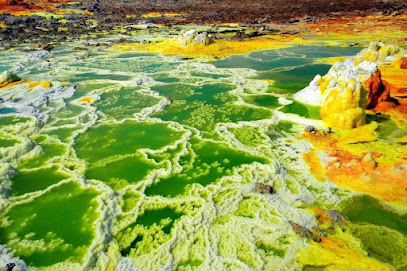
Dallol
Discover the otherworldly landscapes of Dallol, Ethiopia's stunning geothermal wonderland filled with vibrant colors and unique geological phenomena.
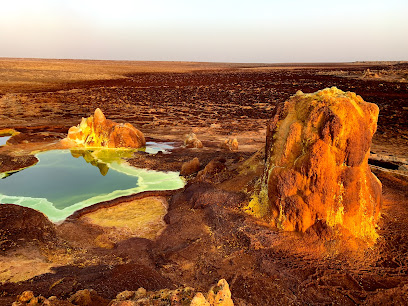
Red Terror Martyrs' Memorial Museum የቀይ ሽብር መታሰቢያ ሙዚየም
Immerse yourself in Ethiopia's history at the Red Terror Martyrs' Memorial Museum, a profound tribute to resilience and human rights.
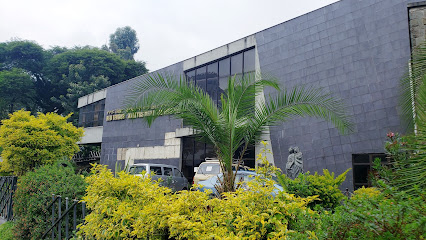
Awash National Park
Discover the untamed beauty of Awash National Park, a wildlife sanctuary featuring diverse ecosystems, stunning landscapes, and rich cultural history in Ethiopia.
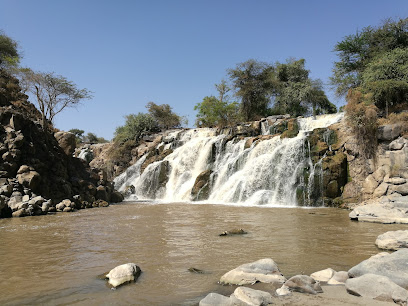
Dallol Depression ዳሎል መታሕት
Discover the mesmerizing landscapes and geothermal wonders of Ethiopia's Dallol Depression, a unique and otherworldly experience for adventurous travelers.
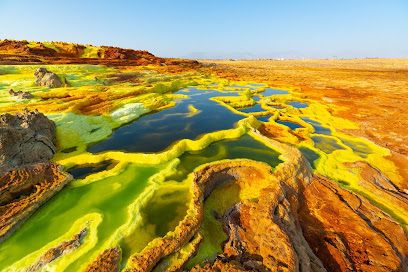
Yangudi Rassa National Park
Explore the diverse ecosystems and unique wildlife of Yangudi Rassa National Park, Ethiopia's hidden treasure for nature lovers and adventure seekers.
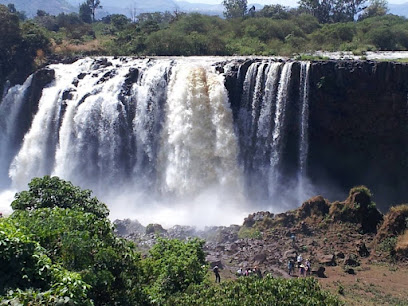
Danakil Depression Tours
Discover the Danakil Depression: a breathtaking blend of vivid landscapes, cultural richness, and geological wonders in Ethiopia's extreme environment.
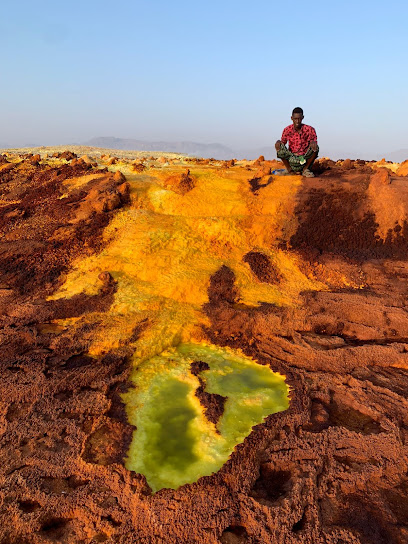
Danakil Depression Travel
Discover the surreal beauty and unique culture of the Danakil Depression, one of the hottest and most colorful places on Earth.
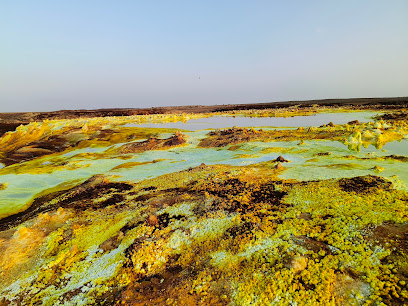
danakil depression
Discover the surreal landscapes of the Danakil Depression, where nature's extremes create a breathtaking adventure in Ethiopia's heart.
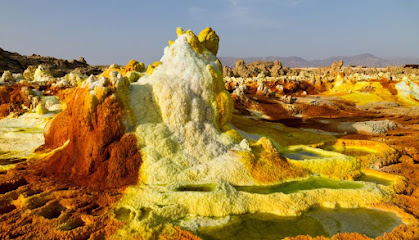
Danakil Depression Ethiopia Tours
Discover the breathtaking landscapes of the Danakil Depression, one of the hottest and most unique places on Earth, rich in culture and geological wonders.
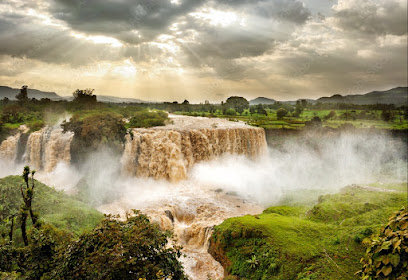
Unmissable attractions to see
Shola Market | Megenagna
Discover the heart of Addis Ababa at Shola Market, where vibrant culture, delicious food, and unique crafts come together in a bustling marketplace.
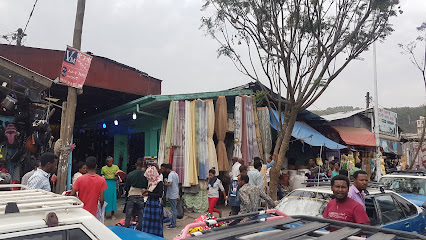
Simien Mountains National Park
Experience the breathtaking beauty and diverse wildlife of Simien Mountains National Park, Ethiopia's premier destination for adventure and nature enthusiasts.
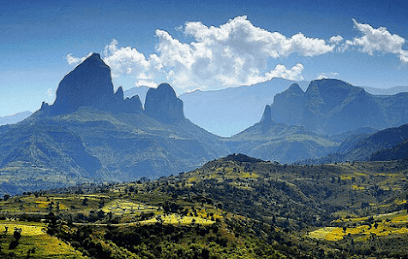
Ethnological Museum
Explore Ethiopia's cultural heritage at the Ethnological Museum in Addis Ababa, showcasing history and traditions through engaging exhibits.
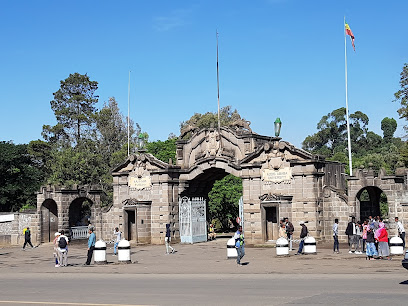
Mount Entoto
Explore the stunning landscapes and rich culture at Mount Entoto, a majestic peak offering breathtaking views and a serene escape in Ethiopia.
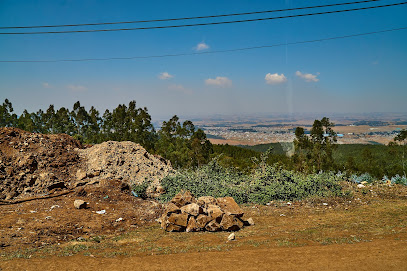
Dallol
Discover the mesmerizing beauty of Dallol, Ethiopia's volcanic wonderland filled with vibrant colors and unique geological formations.
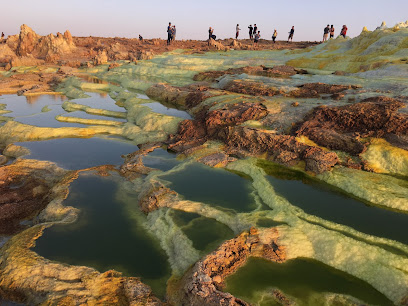
Red Terror Martyrs' Memorial Museum የቀይ ሽብር መታሰቢያ ሙዚየም
Explore Ethiopia's poignant history at the Red Terror Martyrs' Memorial Museum, a profound tribute to resilience amidst political turmoil.
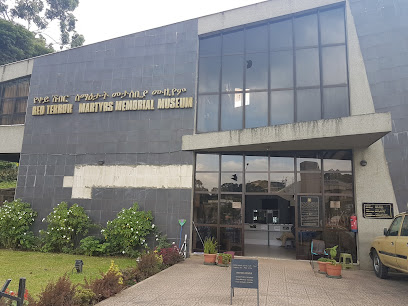
Awash National Park
Discover Awash National Park, Ethiopia's breathtaking natural sanctuary filled with diverse wildlife, stunning landscapes, and rich cultural heritage.
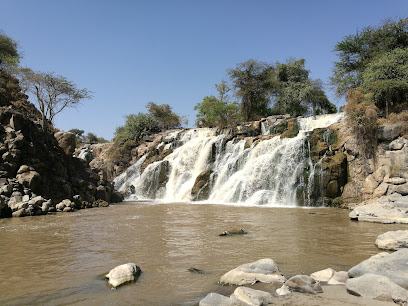
Mile Serdo Wildlife Reserve.
Discover the breathtaking landscapes and diverse wildlife at Mile Serdo Wildlife Reserve, a premier nature preserve in Ethiopia.
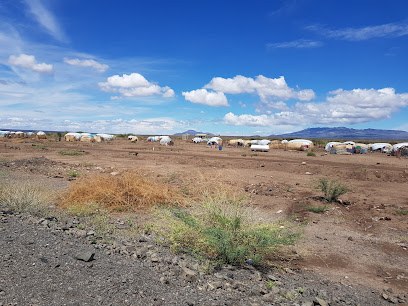
Dallol Depression ዳሎል መታሕት
Explore the Dallol Depression, Ethiopia's vibrant geothermal wonderland, featuring colorful landscapes and unique geological marvels.
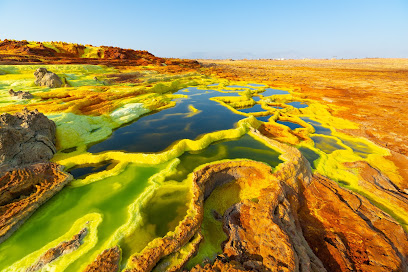
Yangudi Rassa National Park
Explore the breathtaking landscapes and unique wildlife of Yangudi Rassa National Park, a hidden gem in Ethiopia's diverse natural heritage.
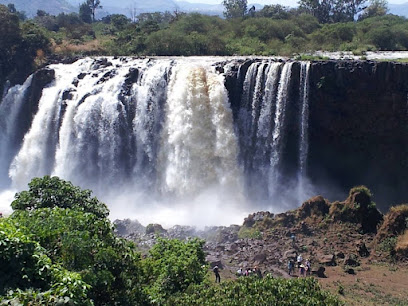
Adadi Maryam (Rock-Hewn)
Discover the breathtaking beauty of Adadi Maryam, Ethiopia's ancient rock-hewn church and a symbol of spiritual heritage and architectural genius.
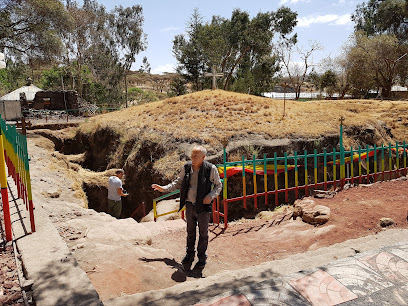
Crocodile Market
Discover the vibrant Crocodile Market in Arba Minch, where local crafts meet the natural wonder of Nile crocodiles in a lively cultural atmosphere.
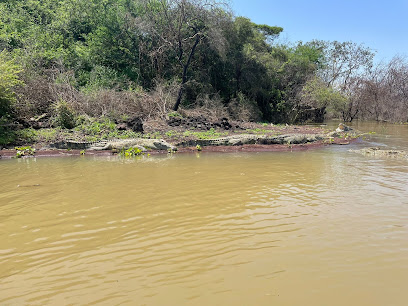
Sycamore Ethiopia Tours
Experience Ethiopia’s breathtaking beauty with customized tours and expert guidance at Sycamore Ethiopia Tours in Addis Ababa.
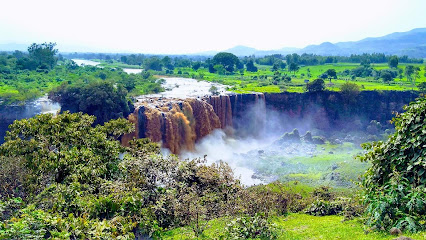
Danakil volcano
Discover the vibrant landscapes and geothermal marvels of Danakil Volcano, a stunning national park in Ethiopia's Danakil Depression.
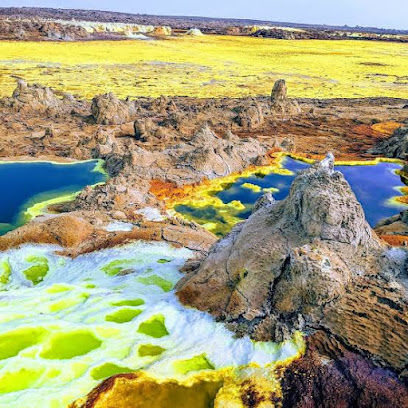
Lake Karum
Discover the stunning beauty of Lake Karum in Ethiopia, a mesmerizing salt lake offering breathtaking landscapes and unique photographic opportunities.
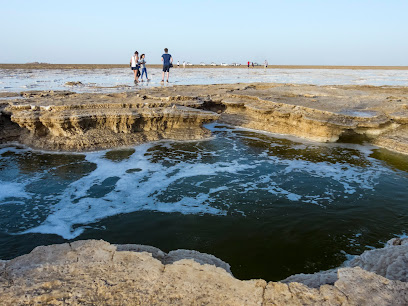
Essential places to dine
Yod Abyssinia Traditional Restaurant
Experience the essence of Ethiopian culture through traditional cuisine at Yod Abyssinia Traditional Restaurant in Addis Ababa.
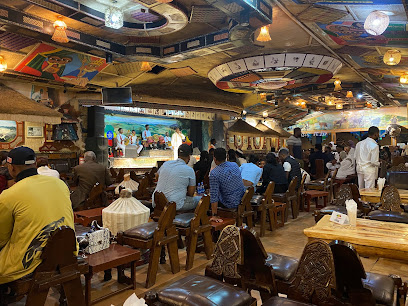
2000 Habesha cultural restaurant | Bole Atlas | 2000 ሀበሻ የባህል ሬስቶራንት | ቦሌ አትላስ
Discover the essence of Ethiopian culture at 2000 Habesha - where authentic flavors meet warm hospitality in Addis Ababa.
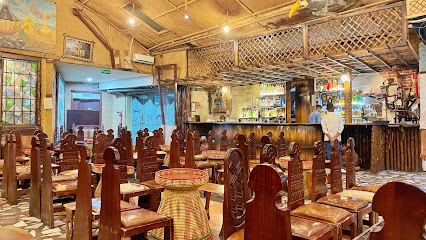
Dashen Traditional Restaurant
Savor authentic Ethiopian flavors at Dashen Traditional Restaurant in Addis Ababa - where culture meets culinary delight.
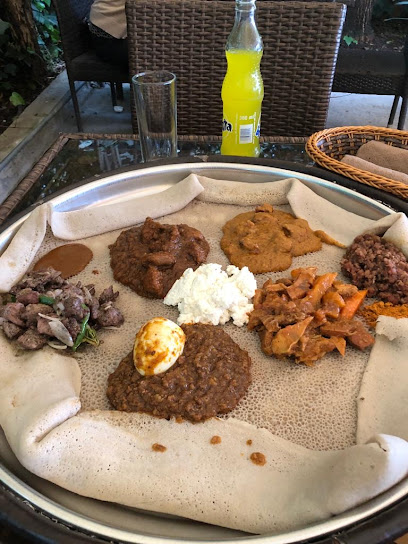
Bait Al Mandi
Experience authentic Yemenite cuisine in Addis Ababa's heart at Bait Al Mandi - where every meal tells a story.
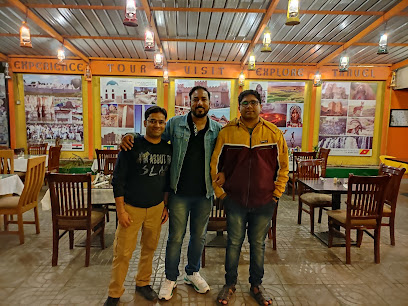
Louvre Grand Hotel & Restaurant
Discover luxury and exquisite dining at Louvre Grand Hotel & Restaurant in Addis Ababa – where elegance meets Ethiopian hospitality.
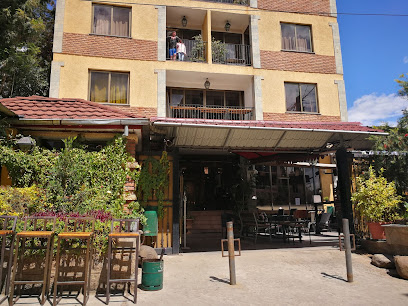
Belvedere Restaurant
Discover the essence of Italy at Belvedere Restaurant in Addis Ababa with exquisite dishes and a warm ambiance perfect for any occasion.
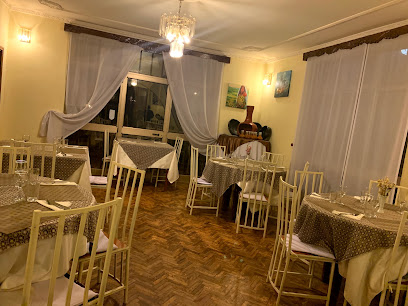
Castelli's Restaurant | piasa | ካስትል ሬስቶራንት | ፒያሳ
Discover the delightful fusion of Ethiopian and Italian cuisines at Castelli's Restaurant in Addis Ababa - a culinary haven for every traveler.
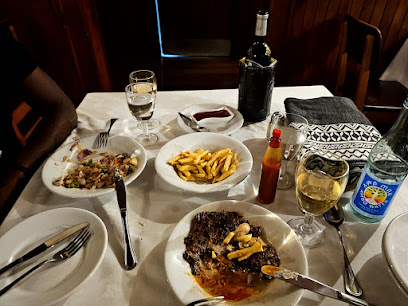
Entoto Restaurant
Discover the rich flavors of Ethiopia at Entoto Restaurant in Addis Ababa - where tradition meets modernity in a stunning setting.
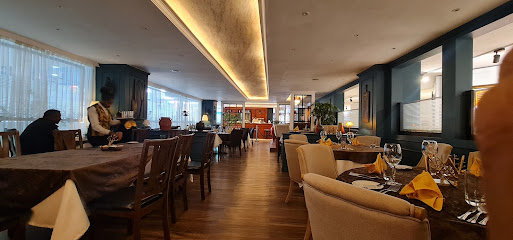
Sichuan Chinese Restaurant
Experience authentic Sichuan flavors at this top-rated Chinese restaurant in Addis Ababa, where culinary tradition meets modern hospitality.
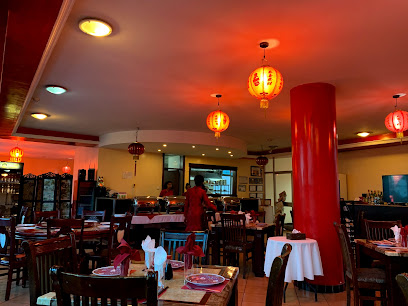
Addis Ababa Restaurant | Piazza |
Experience authentic Ethiopian flavors at this delightful restaurant in Addis Ababa's Piazza district.
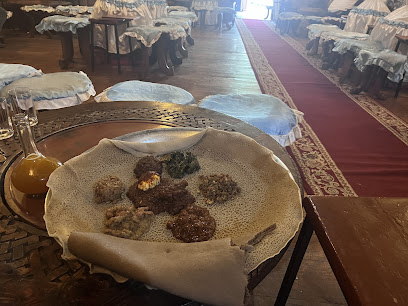
The Oriental
Experience authentic Ethiopian flavors at The Oriental in Meskel Square – where tradition meets modern dining in Addis Ababa.
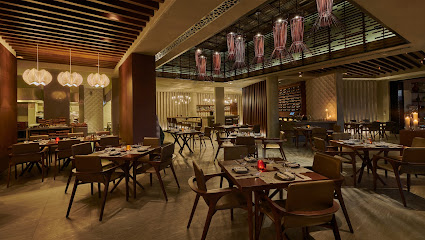
Verres en Vers
Experience exquisite French cuisine at Verres en Vers in Addis Ababa—where elegance meets flavor in every dish.

Gazebo Restaurant on the Park
Experience exquisite dining at Gazebo Restaurant on the Park, where nature meets culinary excellence in Addis Ababa.
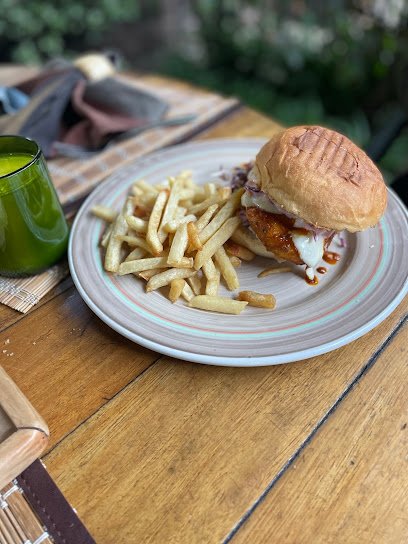
Entoto Road Side
Savor delicious pizzas at Entoto Road Side in Addis Ababa - where tradition meets flavor in every bite!
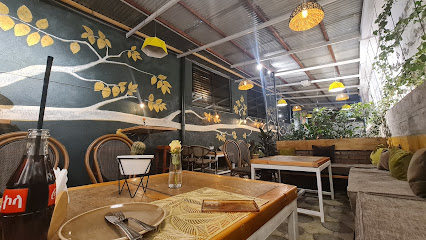
Lucky Cafe & Restaurant
Experience authentic Ethiopian flavors at Lucky Cafe & Restaurant in Addis Ababa, where every dish tells a story.
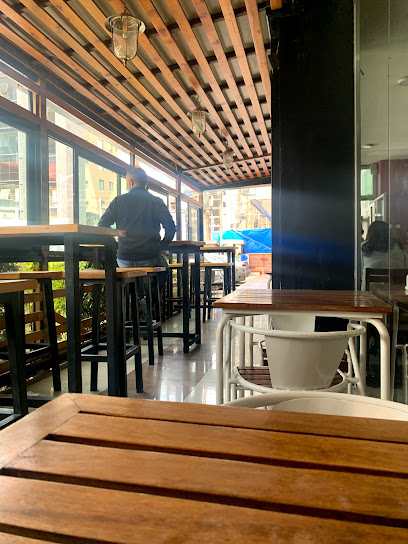
Markets, malls and hidden boutiques
National Museum of Ethiopia
Explore Ethiopia's past and present at the National Museum, home to ancient artifacts, including the iconic fossil 'Lucy' and more.
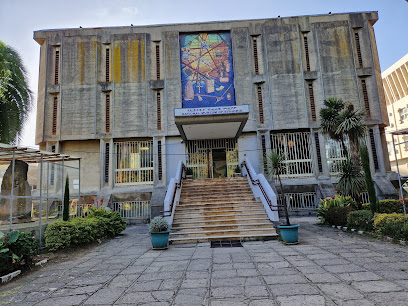
Shola Market | Megenagna
Discover the essence of Ethiopian culture at Shola Market, a vibrant hub of crafts, cuisine, and local life in Addis Ababa.
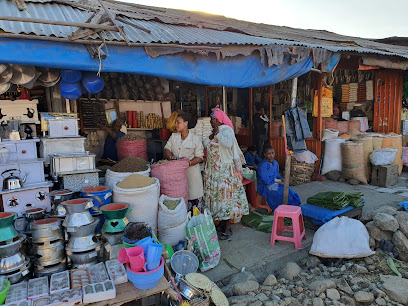
Ethnological Museum
Explore the Ethnological Museum in Addis Ababa, a cultural gem showcasing Ethiopia's rich heritage and diverse traditions.
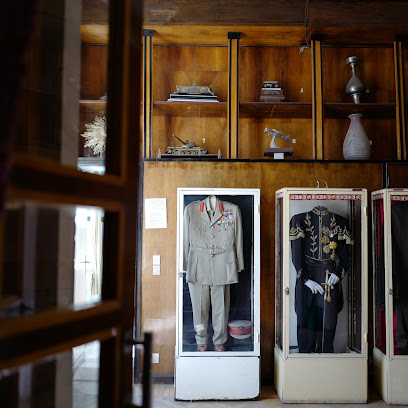
Danakil Desert
Explore the Danakil Desert: A breathtaking landscape of vibrant colors, unique geological formations, and cultural richness in Ethiopia's extreme environment.

Awash National Park
Explore the breathtaking landscapes and diverse wildlife of Awash National Park, a premier destination for nature lovers in Ethiopia.
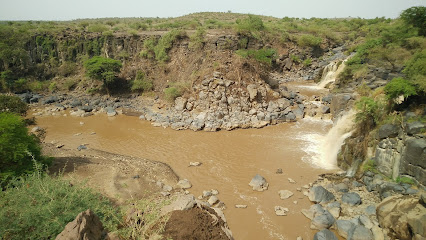
Stunning Ethiopia Tours
Explore the heart of Ethiopia with Stunning Ethiopia Tours, your gateway to unique adventures and unforgettable experiences in a breathtaking landscape.
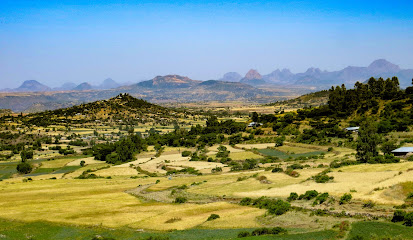
Adadi Maryam (Rock-Hewn)
Discover the spiritual and architectural wonder of Adadi Maryam, Ethiopia's iconic rock-hewn church and a UNESCO World Heritage Site.
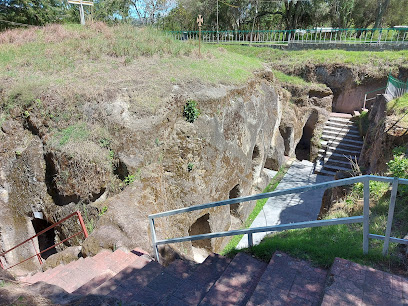
Crocodile Market
Immerse yourself in the vibrant culture of Ethiopia at Crocodile Market, where local crafts and flavors come to life in Arba Minch.
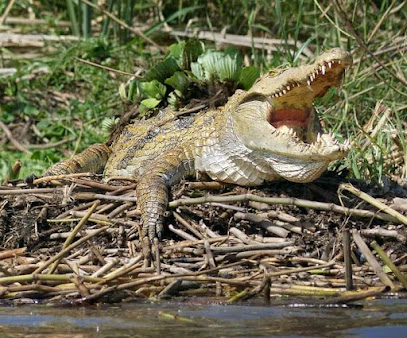
Dreamland Ethiopia Tours and Car Rent
Explore Ethiopia's breathtaking landscapes and rich culture with Dreamland Ethiopia Tours, your trusted tour operator and car rental agency.
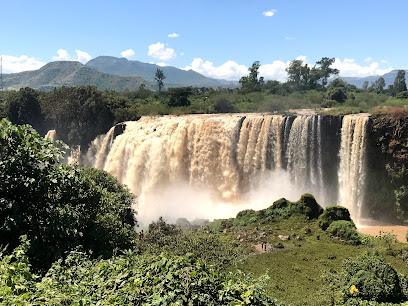
Walk in Ethioipia Tours
Discover the beauty and history of Ethiopia with Walk in Ethiopia Tours, your gateway to unforgettable adventures and cultural experiences.
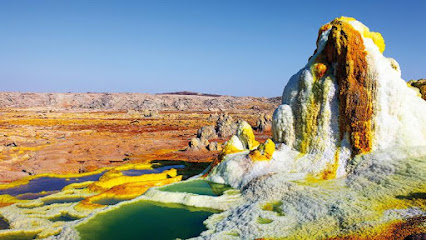
Camel Market
Experience the lively Camel Market in Babile, where tradition meets trade in a vibrant display of Ethiopian culture.
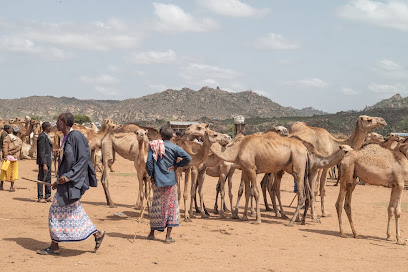
Danakil Depression Tours
Explore the breathtaking landscapes and rich culture of the Danakil Depression, a geological wonder in Ethiopia that promises unforgettable adventures.
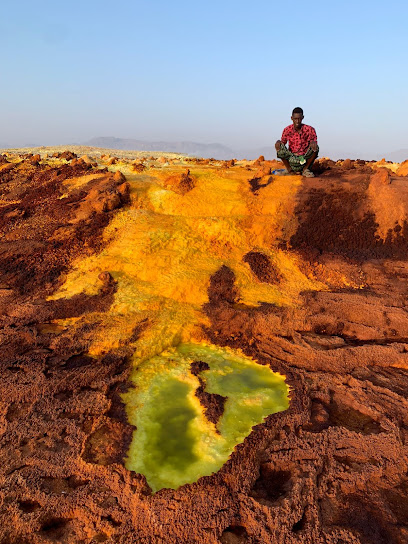
Zagwe Ethiopia Tours
Experience the beauty and culture of Ethiopia with personalized tours from Zagwe Ethiopia Tours, your guide to unforgettable adventures.
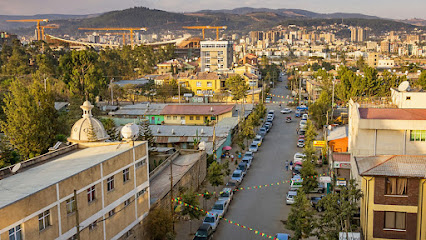
Rock Ethiopia Tours
Discover the breathtaking beauty and rich culture of Tigray with Rock Ethiopia Tours, your expert guide to unforgettable adventures in Mekelle.
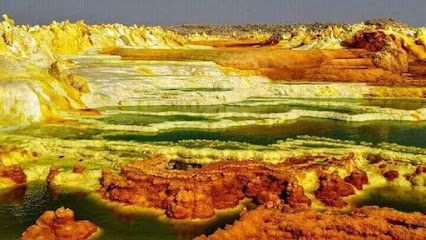
Great Ethiopian Tours
Discover the breathtaking landscapes and rich culture of Ethiopia with Great Ethiopian Tours, your gateway to unforgettable adventures.
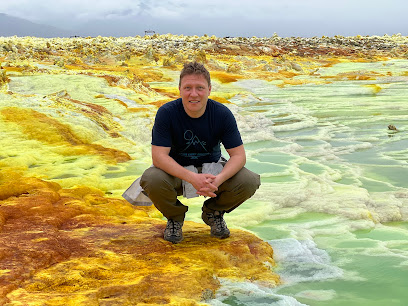
Local Phrases about Danakil Depression
-
- Helloሰላም
[selam] - Goodbyeወደላይ
[waddalay] - Yesአዎ
[aw] - Noአይ
[ay] - Please/You're welcomeእባኮት
[ebakot] - Thank youአመሰገኛለሁ
[amesegagnalehu] - Excuse me/Sorryበዚህ ጊዜ ስለሁ
[bezih gize selega] - How are you?እንዴት ነህ?
[indet neh?] - Fine. And you?በጣምህነህ. እኔስ?
[betamheneh. enes?] - Do you speak English?እንዴት እንዴት እንዴት እንዴት እንዴት?
[indet indet indet indet indet?] - I don't understandአይቻልኝ
[aychaleng]
- Helloሰላም
-
- I'd like to see the menu, pleaseማኔ አይችልም
[mane aychilm] - I don't eat meatአታውራት አይችልም
[atarwat aychilm] - Cheers!ሰማይ!
[semay] - I would like to pay, pleaseመንገድ አይችልም
[mangid aychilm]
- I'd like to see the menu, pleaseማኔ አይችልም
-
- Help!እዬ!
[eye] - Go away!ይሄ!
[yihe] - Call the Police!ሰበር ለአዲስ ፖሊስ!
[seber leadis polis] - Call a doctor!ሰበር ለየጡ!
[seber layetu] - I'm lostወደላይ
[waddalay] - I'm illእየአለም
[eyealem]
- Help!እዬ!
-
- I'd like to buy...ማኔ አይችልም...
[mane aychilm...] - I'm just lookingእንሱ ለማገል አይችልም
[ensu lemagel aychilm] - How much is it?በዚህ ጊዜ እባኮት
[bezih gize ebakot] - That's too expensiveእንዴት እንዴት እንዴት እንዴት እንዴት እንዴት
[indet indet indet indet indet indet] - Can you lower the price?በዚህ ጊዜ እባኮት
[bezih gize ebakot]
- I'd like to buy...ማኔ አይችልም...
-
- What time is it?ሰዓት ማን ነው?
[sa'at man new?] - It's one o'clockአንድ ሰዓት ነው
[and sa'at new] - Half past (10)አምስን ሰዓት
[amsin sa'at] - Morningከሆንህ
[kehonh] - Afternoonከወጋህ
[kegwah] - Eveningከማርያም
[kemariam] - Yesterdayትላንዳል
[telandal] - Todayዛሬ
[zar] - Tomorrowነገ
[nage] - 1አንድ
[and] - 2ሁለት
[hulet] - 3ሶስት
[sost] - 4አራት
[arat] - 5አምስት
[amsit] - 6ስድስት
[sedist] - 7ሰባት
[sebat] - 8ስምንት
[simint] - 9ዘጠኝ
[zeten] - 10አስር
[aser]
- What time is it?ሰዓት ማን ነው?
-
- Where's a/the...?በዚህ አይንቺ...?
[bezih aynchi...?] - What's the address?አድስ ንግግር ነህ?
[adis negger neh?] - Can you show me (on the map)?በዚህ ጊዜ አይንቺ ገብርኤል?
[bezih gize aynchi gebireel?] - When's the next (bus)?በላይ ምን ነው?
[balay min new?] - A ticket (to ....)ትኬት (... ለም)
[tiket (... leme)]
- Where's a/the...?በዚህ አይንቺ...?
History of Danakil Depression
-
The Danakil Depression is one of the hottest and most inhospitable places on Earth. It was formed as a result of the divergence of three tectonic plates: the Arabian, African, and Indian plates. This geological activity has led to the creation of unique geological features such as salt flats, active volcanoes, and colorful hydrothermal fields.
-
For centuries, the Afar people have been mining salt from the Danakil Depression. The area was a major center of salt trade, with caravans transporting blocks of salt, known as 'white gold,' across the Ethiopian Highlands to various parts of Africa and the Middle East. This trade significantly influenced the local economy and culture.
-
The Dallol area within the Danakil Depression is known for its vibrant hydrothermal fields filled with colorful sulphur springs, acid ponds, and salt formations. Discovered by explorers in the early 20th century, it remains an area of scientific interest due to its extreme environment that resembles conditions on other planets.
-
Erta Ale is one of the most active volcanoes in Ethiopia and home to one of the few permanent lava lakes in the world. Its name means 'Smoking Mountain' in the Afar language. The volcano has erupted multiple times in recorded history, with notable eruptions in 1873, 1903, 1940, 1960, and 2005, each altering the landscape and affecting local communities.
-
The Afar people have inhabited the Danakil Depression for centuries, adapting to its harsh conditions. They are traditionally nomadic pastoralists, known for their resilience and unique customs. The Afar language, cultural practices, and social structures remain integral to the region, offering a glimpse into an ancient way of life.
-
Over the years, the Danakil Depression has attracted numerous explorers and scientists, including the famous British explorer Wilfred Thesiger. Modern research expeditions study its extreme conditions for insights into extremophiles and potential analogs for extraterrestrial life. This ongoing scientific interest continues to uncover new aspects of the region's geology and biology.
-
In recent years, the Danakil Depression has become a popular destination for adventure tourism. Tour operators offer guided tours to its various attractions, such as the Erta Ale volcano and the salt mines. This influx of tourists has brought economic opportunities but also challenges related to environmental preservation and sustainable tourism practices.
Danakil Depression Essentials
-
The Danakil Depression is located in the Afar Region of northeastern Ethiopia. The nearest major city with an airport is Mekele. From Addis Ababa, the capital of Ethiopia, you can take a domestic flight to Alula Aba Nega Airport in Mekele. From Mekele, organized tours typically provide 4x4 vehicles for the journey to the Danakil Depression, which takes around 6-7 hours by road.
-
Transportation within the Danakil Depression is primarily facilitated by organized tours using 4x4 vehicles due to the harsh terrain. Independent travel is highly discouraged due to the remote and rugged nature of the area. These tours often include transportation, guides, and security personnel.
-
The official currency of Ethiopia is the Ethiopian Birr (ETB). Credit cards are not widely accepted in the Danakil Depression; hence, it is advisable to carry sufficient cash. ATMs are available in larger cities like Addis Ababa and Mekele, but you should withdraw enough cash before heading to more remote areas.
-
While the Danakil Depression is generally safe, it is crucial to travel with reputable tour operators who provide experienced guides and security personnel. The region is close to the Eritrean border, and occasional tensions can arise. Always follow the advice of your guides and avoid exploring alone. Be aware of extreme temperatures and volcanic activities and take necessary precautions.
-
In case of an emergency, inform your tour guide immediately as they are trained to handle such situations. The nearest medical facilities are located in Mekele, so it is essential to have travel insurance that covers medical evacuation. It is also advisable to carry a basic first aid kit and ensure you have all necessary medications before traveling.
-
Fashion: Do wear lightweight, breathable clothing to cope with extreme heat. Avoid shorts and sleeveless tops to respect local customs. Religion: Do respect local religious practices and sites; dress modestly in these areas. Public Transport: Do use organized tour transportation; public transport is not available in the region. Greetings: Do greet locals with a smile and a polite nod. Eating & Drinking: Do drink plenty of water to stay hydrated. Avoid drinking tap water; always opt for bottled water.
-
To experience the Danakil Depression like a local, engage with the Afar people and learn about their traditional ways of life. Respect their customs and traditions. Try local foods such as 'Injera' and 'Kitfo' when available. Visit the salt mines and witness the traditional salt extraction process. Don't miss the opportunity to see the active Erta Ale volcano and the Dallol sulfur springs.
Nearby Cities to Danakil Depression
-
Things To Do in Tadjoura
-
Things To Do in Arta
-
Things To Do in Ali Sabieh
-
Things To Do in Djibouti City
-
Things To Do in Obock
-
Things To Do in Loyada
-
Things To Do in Dire Dawa
-
Things To Do in Harar
-
Things To Do in Lalibela
-
Things To Do in Mekele
-
Things To Do in Ibb
-
Things To Do in Hargeisa
-
Things To Do in Aden
-
Things To Do in Dhamar
-
Things To Do in Axum








